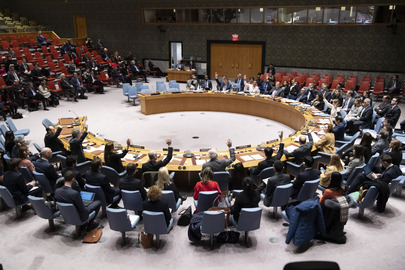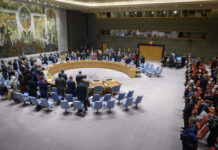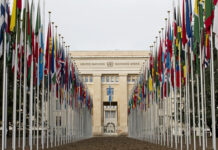This is the News in Brief from the United Nations.
Gaza’s unexploded ordnance could take 14 years to clear
Making Gaza safe again from unexploded bombs could take 14 years, UN demining experts said on Friday.
Pehr Lodhammar, a senior officer from the United Nations Mine Action Service (UNMAS), said that the war has left an estimated 37 million tonnes of debris.
After nearly seven months of intense Israeli bombardment, Mr. Lodhammar said that each affected square metre contained some 200 kilogrammes of rubble.
“All I can say is that at least 10 per cent of the ammunition that is being fired potentially fails to function…with 100 trucks we’re talking about 14 years of work with 100 trucks, so that’s 14 years to remove with about 750,000 workdays – person workdays – to remove the debris.”
The development came as the leaders of 18 nations including the United States called for the release of all remaining hostages taken during Hamas-led terror attacks in southern Israel that killed some 1,250 people.
Israel reportedly believes that more than 130 hostages are still being held in Gaza after the 7 October attacks which prompted the Israeli bombardment.
To date, more than 34,350 Palestinians have been killed and over 77,000 injured, according to the enclave’s health authorities.
Sudan: Civilians ‘are trapped’ in El-Fasher, warns UN rights chief
To Sudan, where escalating violence in North Darfur state has left dozens dead and people trapped in El-Fasher city.
In an alert, UN right chief Volker Türk cited reports that the rival Sudanese Armed Forces and Rapid Support Forces have launched indiscriminate attacks using “mortar shells and rockets fired from fighter jets, in residential districts”.
Since the Rapid Support Forces began their push into El-Fasher, at least 43 people have been reportedly killed, including women and children.
“Civilians are trapped in the city, the only one in Darfur still in the hands of the Sudanese Armed Forces” and they are afraid of being killed if they attempt to flee, the High Commissioner said in a statement.
Mr. Türk noted that the dire situation had been made worse by a severe shortage of essential supplies, as delivery trucks “are unable to freely transit through Rapid Support Forces-controlled territory”.
He added that the Rapid Support Forces had burned down villages in western El-Fasher, including Durma, Umoshosh, Sarafaya and Ozbani, raising the possibility of “further ethnically-motivated violence in Darfur, including mass killings”.
Last year, fighting and attacks between the ethnic Arab Rizeigat tribe and the ethnic African Masalit people in West Darfur left hundreds of civilians dead or injured and thousands displaced, the High Commissioner noted, as he called for an end to the more than year-long conflict.
Just in case’ antibiotics widely overused during COVID-19: WHO
Antibiotics were extensively overused to treat COVID-19 patients in hospital during the pandemic without improving clinical outcomes, the UN World Health Organization (WHO) said on Friday.
The UN health agency warned that this potentially increased the already serious and growing threat of so-called “superbug” resistance to antibiotics globally.
Although just eight per cent of coronavirus patients in hospital had additional bacterial infections that could be treated with antibiotics, 75 per cent were given them on a “just-in-case” basis.
At no point during the global pandemic did the UN health agency recommend using antibiotics to treat COVID-19, which is a virus, said WHO spokesperson Dr Margaret Harris:
“The advice was very clear from the start, that this was a virus. So it wasn’t that there was any guidance or recommendation that clinicians go in this direction, but perhaps because people were dealing with something completely new, they were looking for whatever they thought might be appropriate.”
According to the UN health agency, antibiotics were given to 33 per cent of patients in the Western Pacific and to 83 per cent in the Eastern Mediterranean and Africa.
WHO has warned that antimicrobial resistance threatens the prevention and treatment of an “ever-increasing range of infections” caused by bacteria, parasites, viruses and fungi.
Daniel Johnson, UN News.
Source of original article: United Nations (news.un.org). Photo credit: UN. The content of this article does not necessarily reflect the views or opinion of Global Diaspora News (www.globaldiasporanews.com).
To submit your press release: (https://www.globaldiasporanews.com/pr).
To advertise on Global Diaspora News: (www.globaldiasporanews.com/ads).
Sign up to Global Diaspora News newsletter (https://www.globaldiasporanews.com/newsletter/) to start receiving updates and opportunities directly in your email inbox for free.






























